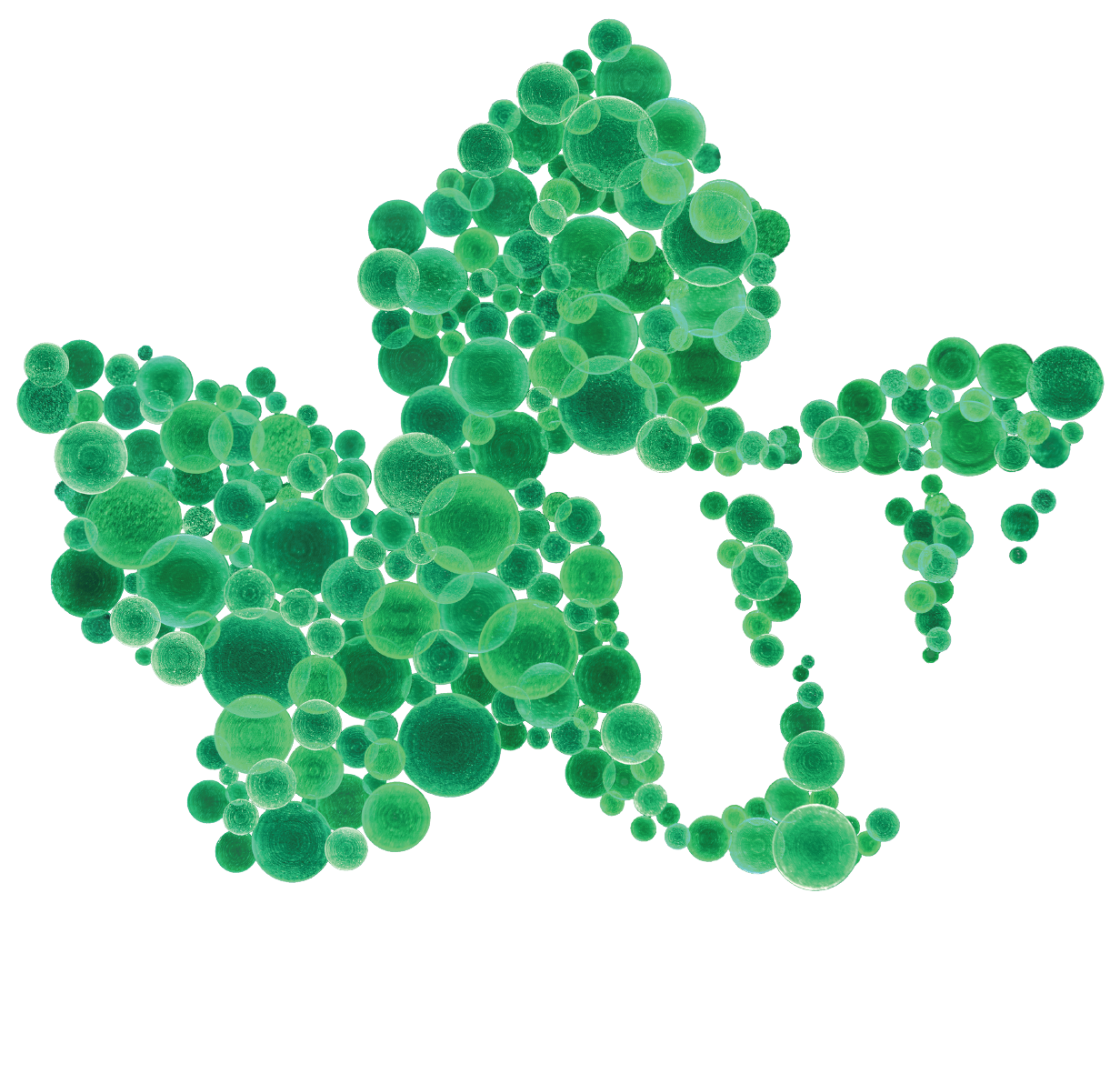Five Kenyan women currently studying abroad at different colleges and universities around the world are working together to improve living conditions in the impoverished urban areas of their home country, and their efforts recently earned them 2nd place and $10,000 in Wege Prize 2016, a global student design competition focused on the circular economy.
Organized by Kendall College of Art and Design of Ferris State University’s (KCAD’s) Wege Center for Sustainable Design in Grand Rapids, Michigan, USA, Wege Prize challenges teams of undergraduate students from around the world to work across institutional and disciplinary boundaries, converging their knowledge and perspectives to design a product, service, or business model that can function within and facilitate a paradigm shift toward a circular economy, an economic model in which resources and capital are regenerative.
KYCE team members Lydiah Mpyisi (left) and Lavender Micalo (right) with their 2nd place trophies at the Wege Prize 2016 Awards
Named Kenyan Youths for a Circular Economy, or KYCE, the team of Stephanie Ageng’o, studying Law at Anglia Ruskin University in the United Kingdom; Lavender Micalo, studying Biochemistry at Roanoke College in the United States; Lydiah Mpyisi, studying Environmental Science and Biology at Roanoke College; Kathleen Murarya, studying Mathematics and Science at Westchester Community College in the United States; and Phenny Omondi, studying Agronomy and Environmental Science at EARTH University in Costa Rica, unveiled an ambitious plan to improve the poor economic and sanitary conditions of Kibera, Kenya’s largest urban slum, where each of the women were born and have spent a majority of their lives.
In Kibera, overpopulation, poverty, and a lack of proper sanitation facilities has resulted in a number of growing environmental and personal health problems including disease, pollution, and lack of access to clean water.
“Our team originally met at the Millennium Campus Conference in New York City at the United Nations headquarters, and during the conference we began talking about how we could come together as Kenyan youths to help our country achieve the sustainability goals that were adopted by the UN in 2015. A few months later we heard about Wege Prize and wanted to get involved,” said Micalo.
Mpyisi, who presented her team’s solution in the final stage of the competition, added, ““We wanted to integrate existing community-based organizations and work together with the government and the locals to come up with solutions that can disrupt the existing wicked problems in Kenya’s urban slums.”
Mpyisi presenting her team's solution at the Wege Prize 2016 Awards
By orchestrating a collaboration between Peepoople, a nonprofit that manufactures and distributes portable toilets that transform human waste into valuable fertilizer; The Community Cooker Foundation, a nonprofit that works to provide communities with bio-digesters that can transform environmental waste into energy; and the Kenyan government, KYCE plans to pave the way for a circular system in which Kibera’s most formidable problems can become assets for growth and development.
Using the Community Cooker Foundation’s bio-digesters, Kibera’s environmental waste would be upcycled into inexpensive and clean heat energy that would provide residents with a means of cooking food and boiling water for safe consumption. Using Peepoople’s Pepoo product, a biodegradable and self-sanitizing human waste receptacle that inactivates harmful pathogens, would give Kibera’s residents an affordable and sanitary means of relieving themselves and allow human waste that is currently polluting the environment to be upcycled as fertilizer for large community gardens that would take the place of existing urban landfills.
“We really appreciated that team KYCE chose to work on a problem in a context that they had personal connection to,” said judge Gretchen Hooker, who works as a Biomimicry Specialist for the Biomimicry Institute. “Their system redesign leverages existing resources in the community in new ways and meets an acute need affecting many people.”
KYCE has already begun connecting with Peepoople, The Community Cooker, and local Kenyan governments to put their plan into action. They hope to use the funds awarded in Wege Prize 2016 to help officially solidify the necessary partnerships and resources to move their idea forward.
“We’re now going to start finalizing all of our partnerships on paper, and we also want to take steps to ensure that our project is sustainable, and that the change we want to see happen in Kibera actually does happen,” said Mpyisi. “Being named a finalist in a global competition like Wege Prize really gave us a voice to approach these organizations and prove to them that our idea is worth listening to.”
Other winning solutions in Wege Prize 2016 included a solution that focuses on creating an on-site waste treatment system for hospitals that minimizes environmental impact while maximizing the ability of the system to recover resources, and a solution that would help Technology for Tomorrow Ltd., an existing company in Uganda that manufactures sanitary pads out of papyrus, adopt a circular model for meeting the heating and electricity needs of its production facilities through biomass gasification of papyrus and paper waste materials.
Thanks to the generous support of The Wege Foundation, which recently awarded $444,000 in grant funding to KCAD’s Wege Center for Sustainable Design to continue running the competition for the next four years, Wege Prize 2017 will be open to any undergraduate student in the world, and will again be focused on the circular economy.
Team registration will open in August 2016, but those interested in participating are encouraged to begin building their teams and brainstorming ideas now. Educators and other professionals who are interested in contributing their expertise are encouraged to contact wicked@wegeprize.org for more information.




